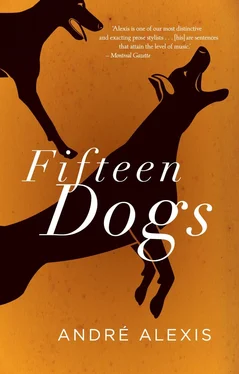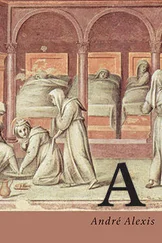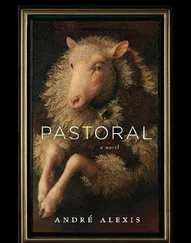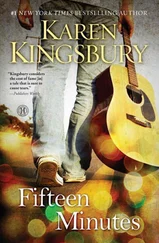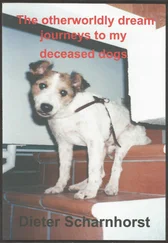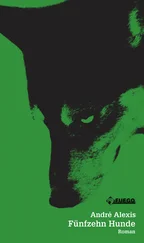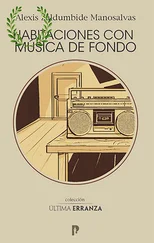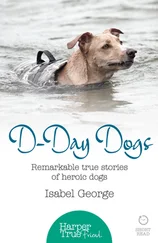Other circumstances worked against him as well. Mr. Menzies, the landlord, had been called away to Glasgow, where his aging father had undergone heart surgery. The last thing on his mind was the property on Rhodes. It would be weeks before he so much as thought about it again. And finally: it being autumn, mice throughout the city were searching for winter homes. For every mouse that found a home, there were many more that found death in the sweet-tasting poisons left in corners or hidden in places a mouse might be forgiven for thinking safe. Before he had been called away and before Randy and Clare left without paying him back rent, Mr. Menzies had traps containing warfarin put down in mouse-tempting places throughout the house: behind appliances, in heating vents, in the cupboards beneath both the kitchen and the bathroom sinks. In principle, the traps were safe for domestic animals. Though the smell of the poison was alluring — like peanut butter, bacon and fried fish — there was no way for a cat or dog to open the black, plastic containers to get at the poisoned pellets. The traps should have been doubly safe, where Benjy was concerned, because something in their smell reminded him of a garden of death.
Desperately hungry at last, however, he opened the door to the cupboard beneath the kitchen sink. The cupboard smelled of chemicals and decay: soap, acids, rust, mould and grime. In amongst the chemical smells was a hint of peanut butter and fish skin. And it suddenly — or conveniently — occurred to Benjy that the smells of death came not from the plastic trap but from the tins, bottles and cans around it. If he could get the black container out, he would find the remains of a meal that had, by happy accident, been left under the sink.
As it happened, getting the trap from under the sink was not difficult. He burrowed amongst the bottles and cans, his sense of smell leading him to the black plastic container. What took time was deciding how best to open the thing. He could hear the ‘food’ rattling around inside. He could smell sustenance, but shaking the container did nothing. He was resourceful, however. After some thought, he dropped the trap from the kitchen counter, letting it fall to the floor. He did this only once. The box flew open and half a dozen pellets scattered like pink insects over the linoleum floor.
Benjy ate every one of the pellets. He waited, felt hungry still, then licked the floor where the pellets had touched. He was grateful that he had found food, strange-tasting food though it had been. He then repeated the process with the trap beneath the bathroom sink. After eating those, he drank water from the toilet and went to sleep on the bed.
True pain came late the following night. Benjy knew at once that he had made a mistake and that death was on him. His knowledge came from the strangeness of the agony: as if a fire were moving deliberately through the den of his body, searching for kindling. Also: his thirst was beyond appeal or satisfaction. His instinct was to stay still and hide from death. But he was driven to drink from the toilet, and this he did until he was too weak to stand up on his hind legs, too weak to drink.
The ‘great cold’ had come for Benjy. The death he experienced was as terrible as that suffered by Atticus, Rosie, Frick and Frack. And yet, in the midst of his terrible end, he experienced a stillness from which, in a manner of speaking, he could see beyond life and pain, beyond the world itself to a state that promised relief from suffering. As he died, bleeding from the nose, on the white tile floor of the bathroom, Benjy experienced a moment of hope that was not transcendent or mystical, but, rather, very much in keeping with his character. From the moment he was whelped, Benjy had been calculating, a schemer. But like all schemers he held within him the vision of a place or a state beyond schemes, where schemes were unnecessary because he was safe.
Benjy’s greatest wish was for a place where the echelon was clear to all, where the powerful cared for the weak and the weak gave their respect without being coerced. He longed for balance, order, right and pleasure. It was this place that Benjy glimpsed as he died, and the glimpse brought him solace. Were it meaningful to speak of death as a state of being, one could say that Benjy died into hope itself.
In any case, he went to that place from which neither dogs nor men return.
+
Zeus had fulfilled Atticus’s final wish. Benjy died a death as painful as Atticus’s had been. Being the god of justice, however, Zeus had granted Benjy the same degree of hope that Atticus had had at his death.
All of this was no doubt interesting to some god somewhere, thought Hermes, but it was annoying. Had Benjy died happy or not? Thanks to their father’s interference — and it was no use chiding him for it, either, there being no recourse from Zeus’s will — the answer was not as clear as it might have been. Benjy’s beatific vision of balance, order and right complicated matters. Apollo, of course, was certain that the dog had not died happy.
— Hope has nothing to do with happiness, Apollo had said
and there was no refuting that. Most of those who lived or died unhappily were as hope-filled as those whom the gods had favoured. Hope was a dimension of the mortal, nothing more. As he and Apollo discussed Benjy’s death, however, it occurred to the god of thieves that he had not been clear-sighted when he’d dictated the terms of his and his brother’s wager. The problem was death itself. No immortal could think of death without yearning for it. That yearning was, no doubt, what had led Hermes to imagine a happy death without being sufficiently clear as to the nature of the happiness.
— I think, he said to his brother, that we should broaden the definition of happiness. It would be generous of you to include hope or …
Apollo cut him off.
— Are we suddenly human that we need to argue about words?
Hiding his thoughts, Hermes said
— No
but for the first time in all this business, he experienced something surprisingly like resentment.
Five years had passed, five years from the moment Hermes and Apollo had entered the veterinary clinic and changed the dogs they found there. Of the fifteen dogs, only two were left: Majnoun, who was now eight, and Prince, who was seven.
Five years after Majnoun had come into her life, Nira thought of him as her closest friend. Though they did not speak — or not exactly — she felt that Majnoun understood her as well as her husband did. Perhaps better. Over the years, there had been fewer disagreements with Majnoun than with Miguel. But then, Miguel was her mate. She hid nothing from him, nor he from her. Their love was still strong, but it was mired in the day-to-day. With Majnoun, Nira could be herself in a way that brought relief from the company of her husband. It is a cruel irony, then, that a disagreement with Majnoun would prove disastrous for all three of them.
There had always been issues with Majnoun, of course. For instance, Nira could not understand why he persisted in eating the shit of other dogs. He knew that it upset her. On any number of occasions she had begged him to control himself.
— It makes me ill to see you do it, she’d say.
Majnoun would nod and agree not to do it again, but, really, it was like asking a child not to eat any of the cakes left out at a patisserie. It was cruel to expect him to forbear, though out of consideration for her, Majnoun would forbear for months at a time until, inevitably, he’d forget her feelings and pounce on some fragrant deposit. So the whole cycle of revulsion (hers) and self-control (his) would begin again. This was a conflict that, Nira assumed, arose from Majnoun’s nature. Majnoun was a dog, a sensitive and intelligent dog, but a dog just the same. For long stretches, she managed to convince herself he was other than what he was, then reminders of his nature would break the delusion.
Читать дальше
